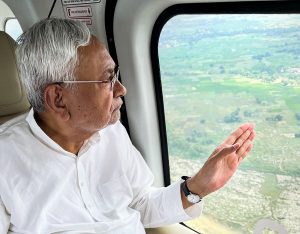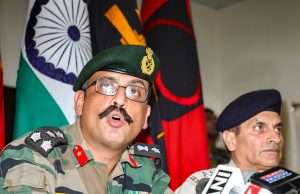The Indian
government on Thursday extended the Armed Forces Special Powers Act, 1958 or
AFSPA in Nagaland for another six months. The AFSPA gives sweeping powers to
armed forces in controlling the law and order situation in Nagaland. While
extending the AFSPA Act, the Centre said the state is in such a “disturbed
and dangerous condition” that the use of armed forces is necessary.
Also Read: Nagaland govt to form panel to look into demand for AFSPA withdrawal
The
Ministry of Home Affairs made the announcement through a gazette notification
amid calls from the Northeastern state to withdraw it after the armed forces
allegedly killed 14 civilians in an ambush in Nagaland’s Mon district on
December 4.
“Whereas
the Central Government is of the opinion that the area comprising the whole of
the state of Nagaland is in such a disturbed and dangerous condition that the
use of armed forces in aid of the civil power is necessary,” the
notification said, ANI reported.
Also Read: Protests in Kohima seeking justice for 14 civilians killed by armed forces
“Now,
therefore, in exercise of the powers conferred by Section 3 of the Armed Forces
(Special Powers) Act, 1958 (No.28 of 1958) the Central Government hereby
declares that whole of the State of Nagaland to be ‘disturbed area’ for a
period of six months with effect from December 30, 2021 for the purpose of the
said Act,” it mentioned.
The AFSPA
gives certain special powers to a member of the Armed Forces in areas in the
border states of Arunachal Pradesh, Assam, Manipur, Meghalaya, Mizoram,
Nagaland, Tripura and Jammu and Kashmir where insurgency and terrorism are
major challenges for the Indian government.
Also Read: What is Hornbill Festival? Famous Nagaland celebration called off this year
British era
law
The British
era law was first introduced in 1942 during the Quit India movement.
In a
‘disturbed area’, a military officer can fire upon an unlawful assembly of five
or more people if the need arises or even for illegal possession of firearms.
Moreover, according to the law, no arrest and search warrants are required for
any operation.
Also Read: Botched op makes Nagaland seek AFSPA repeal
It also
provides protection to persons acting under Act, which means ‘No prosecution,
suit or other legal proceedings shall be instituted, except with the previous
sanction of the Central Government, against any person in respect of anything
done or purported to be done in exercise of the powers conferred by this Act’.
Also Read: Botched op and local rage: All you need to know about Nagaland killings
Since the
alleged killing in Mon district, Nagaland witnessed widespread protests
demanding withdrawal of the controversial AFSPA act.



